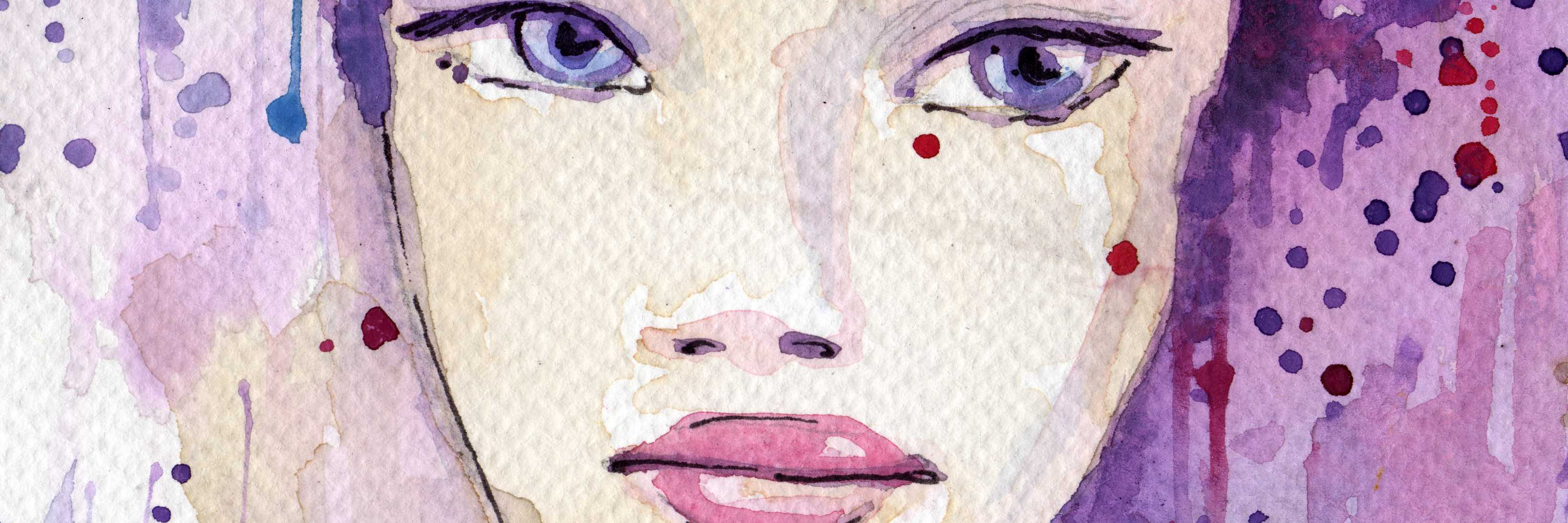According to the National Education Alliance, women with BPD may also experience chronic depression, anxiety or eating disorders. I deal with all of them.
I find it fairly easy to discuss my anxiety, depression and have recently started to talk openly about my eating disorder. What I don’t talk about is the fact that they are all very likely tightly connected to my borderline personality disorder (BPD). In fact, I have only said it out loud twice since my diagnosis.
Borderline personality disorder has a stigma attached to it unlike any other mental illness I have encountered. Even many psychiatric professionals seem to look down on those with BPD, and even refuse to treat people who need help. This is likely due to the fact that BPD has no easy “cure” or treatment. Because BPD manifests on an interpersonal level, I believe this makes it difficult to treat.
Due to my BPD, I have an extreme fear of abandonment. I am pretty much convinced that my husband will wake up one day and decide to leave me. I think all of my friends hate me, and I obsess over everyone I love dying, and me being left alone.
I have a hard time making, and an even harder time keeping friends. I tend to be hot or cold when it comes to someone. Either I love you, or I hate you — there is very little space in between. Even though I can acknowledge this, it does not change the way my brain processes interactions. I get very close to one person, or small groups of people fairly quickly if I like them, and end up getting way too emotionally invested and in the long run hurt because of this. I think my friends are the absolute best people in the world. They are funny, caring, supportive and all-around good people. Until one day they aren’t, and I can’t trust them, and end up crying myself to sleep over something they have done. Intense “best friendships” can last anywhere from a few days to almost a year before blowing up in my face. I have a tattoo that is a permanent reminder of one said friendship.
I think about suicide constantly. According to the National Institute of Mental Health, “as many as 80 percent of people with BPD have suicidal behaviors.” I picture how I would do it at least twice a day, usually more. I used to engage in self-harm behaviors as a form of coping. I am proud to say I have not harmed myself in 12 years as of May 25th of this year. I still think about it daily.
My suicidal ideation is spurred on by my unstable self-image and my barely-there sense of self. I have been trying to “find myself” for over 16 years. My friends and family joke about me being eclectic with my likes, dreams, goals and wardrobe, when in reality, I am just trying to figure out my role in this play we call life. One day I want a large floppy straw hat, a Tommy Hilfiger jumper and a strand of pearls. Other days, I shave my head, rock a blue mohawk and a dog collar necklace. I write and preach about living life as your “authentic self,” but I couldn’t tell you who that person is for me.
This creates intense feelings of emptiness. I often feel as though I have no purpose and my life goals and plans change frequently to reflect this. I own three guitars, but can’t play any of them. I own three business URLs that have gone completely unused. I change jobs quicker than most people change their bed sheets.
I cannot control my emotional reactions. I don’t usually feel simple anger, it manifests as rage. I don’t just get sad, I get melancholy. The smallest slight can often feel like a huge betrayal. Intense emotions such as fear, hurt, anxiety, anger, sadness and shame can last for a few hours to as long as a few days.
These intense feelings lead to impulsive behavior, especially when I become overwhelmed. I spend money like a baller, binge eat or purge and drink to excess. The impulsivity may seem fun from the outside, but it quickly gets out of control and can be dangerous not just for me, but for those around me.
So, if I let you in through the crack in the wall I have built around myself, please, treat me with care because I am hurting. The worst part of BPD for me is simple, it’s loneliness.
If you or someone you know needs help, visit our suicide prevention resources page.
If you need support right now, call the National Suicide Prevention Lifeline at 1-800-273-8255 or text “START” to 741-741.
We want to hear your story. Become a Mighty contributor here.
Thinkstock photo via bruiniewska.

